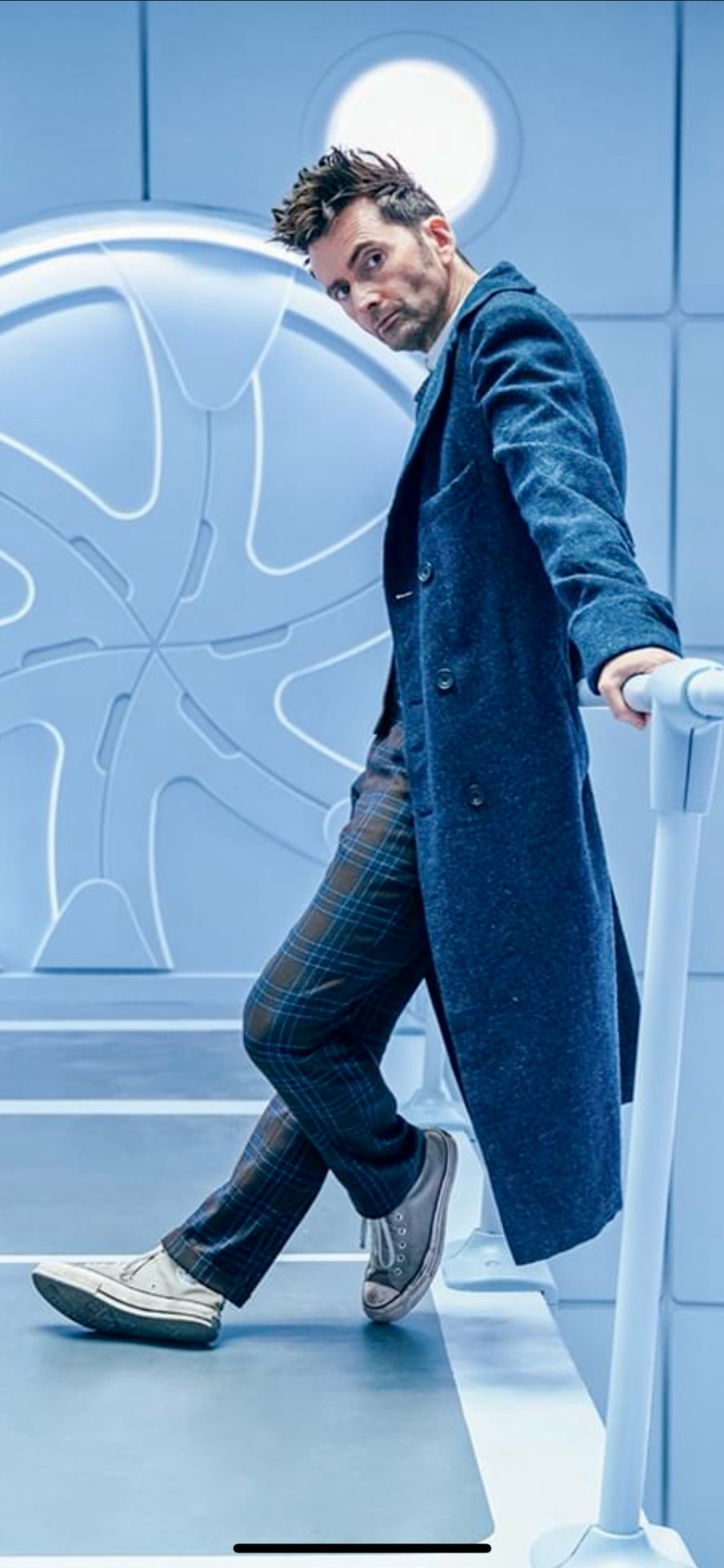#best of the list
Text
Film #360: 'Mishima: A Life in Four Chapters', dir. Paul Schrader, 1985.
"I realised life consisted of two contradictory elements. One was words, which could change the world. The other was the world itself, which had nothing to do with words."
Considering how psychologically and politically complex the author Yukio Mishima was, it's hardly surprising that Paul Schrader's 1985 film Mishima: A Life in Four Chapters needs to use different visual styles just to keep things straight. Schrader's film illuminates several important periods of the author's life, both through dramatisations of some of Mishima's novels and a portrayal of Mishima's attempted coup in 1970. This strategy was also partly necessary because of how veiled Mishima's life was - in many cases, the only way to access the man is through his novels.
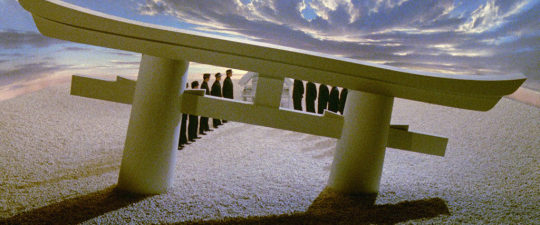
Yukio Mishima was one of Japan's most celebrated writers, publishing dozens of novels, plays, and short stories throughout his life. Many of these works are considered to be at least partially autobiographical. In later life, he became more overtly militaristic and nationalist, leading a platoon of young men who ostensibly were committed to the ideals of bushido, the code of the samurai. Finally, in 1970, he and four of his private guard traveled to a Defense Force base and took the general there hostage, demanding that Mishima be allowed to speak to the assembled troops and encourage them to stage a coup that would lead to the restoration of the Japanese Emperor. When this attempt resulted only in heckling, Mishima and one of his followers committed ritual suicide.
Schrader's film could merely tread the traditional artist biopic path, by filtering everything through a naturalistic depiction of Mishima's life. Instead, he observes that the novels have the capacity to illuminate qualities of the author's life that could otherwise be mundane footnotes. As a result, he strips out almost all biographical detail that can be thematically represented through the lush dramatisations of three of Mishima's novels. Schrader chose sections of three Mishima novels to adapt - The Temple of the Golden Pavilion, Kyoko's House, and Runaway Horses - but also drew the details of Mishima's early life from the semi-autobiographical novel Confessions of a Mask. In The Temple of the Golden Pavilion, a Zen acolyte is haunted by the beauty of the pavilion, and hopes for its destruction before finally committing to destroying it himself. Kyoko's House explores the story of a young man who enters into an ultimately fatal sadomasochistic relationship with the leader of an organised crime syndicate, while wrestling with his own feelings surrounding his body and his sexuality. Runaway Horses introduces more of Mishima's politically subversive traits - in this novel, young nationalist zealots try and overthrow the government, with the leader eventually committing suicide. Schrader had initially wanted to dramatise a section of another novel, Forbidden Colours, but the rights to the novel were denied by Mishima's widow.
Taken together, the themes of these three novels are almost sufficient to explain the author's life, with its constantly-intertwined themes of violence and sexuality (and a simmering current of misogyny beneath it all), but Schrader also includes some of Mishima's early life in black-and-white footage reminiscent of an Ozu film, and a beat-by-beat coverage of Mishima's final day. To help orient the viewer, the dramatisations take place on artificial sets and the modern-day sequences are filmed in a more naturalistic style. However, this distinction also serves a thematic purpose, fencing off the excesses of Mishima's artistic life. It's almost hard to believe the author of these novels is the same man we see exhorting a platoon of the Defense Force to stage a rebellion. It's only at the very end of the film that Mishima explains how his art and his political beliefs can only be reconciled at the moment of death - to him, all progress is decay, and throughout his life he fights against it, throwing himself into bodybuilding and male-only expressions of camaraderie and political potency. Although his coup fails, it represents the combination of art and death as a force that Mishima sought throughout his life.
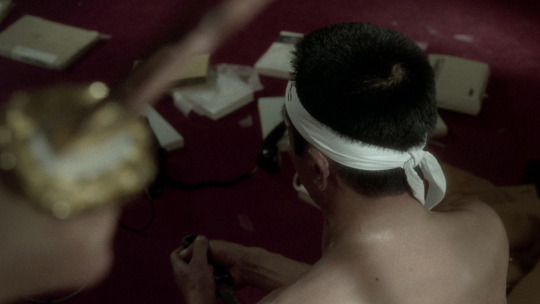
And Schrader certainly makes death look pretty. For many years, my only experience of Mishima was a grainy ex-rental VHS tape, which I rescued from the Aro Video clearance bin. I committed the ultimate cinema sin, watching it on a small screen at two in the afternoon without even closing the curtains! Even under those conditions, though, it's the imagery of these dramatisations that has stuck with me. As production designer, Schrader brought in the famed graphic artist Eiko Ishioka. Ishioka's contributions to the film are indelible images that combine 1980s vibrancy with 1950s showroom style, each dramatisation with its own colour scheme and cultural touchstones. Golden Pavilion is an enclosed soundstage with a miniature pavilion, all bedecked in gold and green - what at first seems to be a static set reveals layers of distance and transformation. Kyoko's House moves more into magenta, and most scenes have an establishing shot from a high angle that shows the room adrift in a featureless black space. Runaway Horses uses similar techniques, but the colour palette is in whites and blues, and Ishioka and Schrader use projections to show the sky - a sight we barely see in the film. All of these portrayals are consciously theatrical, a nod to Mishima's experiences in writing drama. Schrader's decision to end each of the dramatisations just before the climax, only to bring each story back at the very end of the film in a dazzling tableau, means that the film is maintaining a complicated balancing act throughout. We're led to believe that the tension before the catharsis is all we'll get out of each story, which makes the images at the end feel like successive punches in the gut. Mizoguchi burns the golden temple to the ground; Osamu and Kiyomi lie dead; Isao kills himself just at the moment of the sunrise. The credits roll over a real-time shot of the orange rising sun, with the thunderous Philip Glass score pulsing throughout (this score, performed in part by the Kronos Quartet, gives the film an otherworldly and sometimes hysterical feeling. I love it).
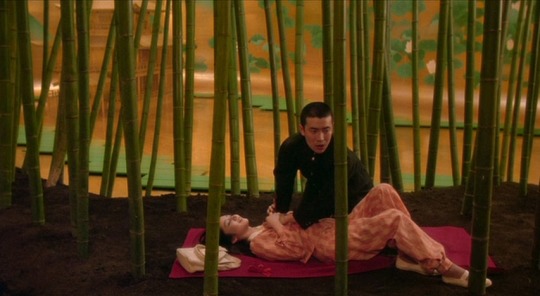
While Schrader considers Mishima to be the best film he has directed, it has never received an official screening in Japan. A successful boycott of the film was mounted due to its presentation of Mishima as a gay man. This was also the subject of the refused novel Forbidden Colours, which revolves around a gay man who enters a marriage with a woman for financial stability, although it's unclear how closely this resembled Mishima's life - by this point he was an accomplished and wealthy writer. Mishima's widow threatened to file suit against the film, claiming in an interview that her late husband's novels were "overly simplified to distort the meaning to nothing but homosexuality and violence". This criticism is surprising, given the restrained way in which Schrader treats Mishima's sexuality overall. Mishima as shown on the day of his attempted coup has no sexuality at all - his wife and children are alluded to but not shown; his queer affairs appear only in flashback (and given that they're based on Confessions of a Mask, it's not clear if they are meant to be literal events from Mishima's life, or representative elements of Mishima's personality). While we don't know for sure how Mishima identified, he was certainly queer to a significant extent, and it seems that Mishima's queer identity was irreconcilable with the image of the masculine literary lion. Schrader's film, perhaps deliberately, keeps these two subjects in tension. The excerpt from Kyoko's House is the most explicitly queer of the three novels, but its content is still coded. While in this section of the film Osama expresses a desire to cross the boundaries of gender, this is still quarantined within an outwardly heterosexual pairing.
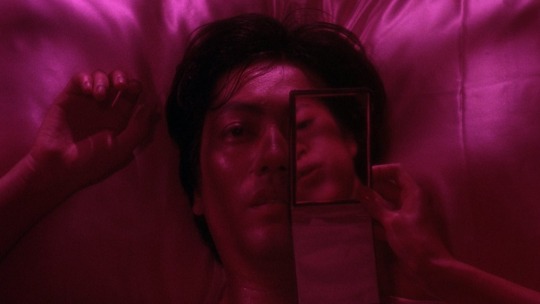
This restraint takes on a physical form within Schrader's film. The vivid and sumptuous sets where queerness is allowed to exist in all its camp glory are also closed boxes, drawing explicit boundaries between the world of emotion and the world of political reality. Schrader treats the three novels as partially autobiographical, but this raises an interesting question, I think: were we meant to know this, to see this, to assume this about the man himself? Did Mishima deliberately intend for his novels to reflect aspects of himself and his personality? Or were these novels a way of distancing and isolating his desires, both for an expansive queer expression and a radical and violent rage? If it is the latter, then Schrader's film has broken down these walls and brought Mishima's complicated identity into full view. Whether you know a lot about Yukio Mishima or are just being introduced, Mishima: A Life in Four Chapters is the most arresting artist biopic ever committed to film, sumptuous and iconoclastic at the same time.
#1001 movies#genuinely good films#paul schrader#mishima: a life in four chapters#mishima#best of the list
2 notes
·
View notes
Text
the fact that shakespeare was a playwright is sometimes so funny to me. just the concept of the "greatest writer of the English language" being a random 450-year-old entertainer, a 16th cent pop cultural sensation (thanks in large part to puns & dirty jokes & verbiage & a long-running appeal to commoners). and his work was made to be watched not read, but in the classroom teachers just hand us his scripts and say "that's literature"
just...imagine it's 2450 A.D. and English Lit students are regularly going into 100k debt writing postdoc theses on The Simpsons screenplays. the original animation hasn't even been preserved, it's literally just scripts and the occasional SDH subtitles.txt. they've been republished more times than the Bible
#due to the Great Data Decay academics write viciously argumentative articles on which episodes aired in what order#at conferences professors have known to engage in physically violent altercations whilst debating the air date number of household viewers#90% of the couch gags have been lost and there is a billion dollar trade in counterfeit “lost copies”#serious note: i'll be honest i always assumed it was english imperialism that made shakespeare so inescapable in the 19th/20th cent#like his writing should have become obscure at the same level of his contemporaries#but british imperialists needed an ENGLISH LANGUAGE (and BRITISH) writer to venerate#and shakespeare wrote so many damn things that there was a humongous body of work just sitting there waiting to be culturally exploited...#i know it didn't happen like this but i imagine a English Parliament House Committee Member For The Education Of The Masses or something#cartoonishly stumbling over a dusty cobwebbed crate labelled the Complete Works of Shakespeare#and going 'Eureka! this shall make excellent propoganda for fabricating a national identity in a time of great social unrest.#it will be a cornerstone of our elitist educational institutions for centuries to come! long live our decaying empire!'#'what good fortune that this used to be accessible and entertaining to mainstream illiterate audience members...#..but now we can strip that away and make it a difficult & alienating foundation of a Classical Education! just like the latin language :)'#anyway maybe there's no such thing as the 'greatest writer of x language' in ANY language?#maybe there are just different styles and yes levels of expertise and skill but also a high degree of subjectivity#and variance in the way that we as individuals and members of different cultures/time periods experience any work of media#and that's okay! and should be acknowledged!!! and allow us to give ourselves permission to broaden our horizons#and explore the stories of marginalized/underappreciated creators#instead of worshiping the List of Top 10 Best (aka Most Famous) Whatevers Of All Time/A Certain Time Period#anyways things are famous for a reason and that reason has little to do with innate “value”#and much more to do with how it plays into the interests of powerful institutions motivated to influence our shared cultural narratives#so i'm not saying 'stop teaching shakespeare'. but like...maybe classrooms should stop using it as busy work that (by accident or designs)#happens to alienate a large number of students who could otherwise be engaging critically with works that feel more relevant to their world#(by merit of not being 4 centuries old or lacking necessary historical context or requiring untaught translation skills)#and yeah...MAYBE our educational institutions could spend less time/money on shakespeare critical analysis and more on...#...any of thousands of underfunded areas of literary research i literally (pun!) don't know where to begin#oh and p.s. the modern publishing world is in shambles and it would be neat if schoolwork could include modern works?#beautiful complicated socially relevant works of literature are published every year. it's not just the 'classics' that have value#and actually modern publications are probably an easier way for students to learn the basics. since lesson plans don't have to include the#important historical/cultural context many teens need for 20+ year old media (which is older than their entire lived experience fyi)
23K notes
·
View notes
Text
Scenes/Things in Supernatural that genuinely don't make sense to me if Dean was straight:
The confession booth scene.
Sam just rolling with the fact that Dean's siren is a guy while still thinking sirens infect people through sex.
Dean being flustered by several men: Gunner Lawless, Aaron, Doctor Sexy, etc.
All the parallels between Destiel and other couples. (A big one being "last night on Earth" bc how do you do that accidentally.)
Having all the gay jokes be on Dean instead of Sam.
Paralleling Sam meeting his childhood celebrity crush with Dean meeting Gunner Lawless.
The boner Dean got when Cas cleaned up.
Dean gulping after Cas does an impression from a Western movie.
Charlie, a lesbian, calling Castiel "dreamy."
The way Mary looks at Dean and Cas when they hug.
Dean wondering why everyone assumes he's gay, while Sam not caring.
The logic that Charlie can't flirt with guys because she's only attracted to women, but then having Dean flirt with the guy for her.
Dean seeming disappointed when learning that Aaron's flirting was fake.
The amount of time Dean and Cas spend staring at each other.
Dean canonically having an orgy with Crowley.
A woman saying that she knows when someone's pining for someone else to Dean, just for us to learn that Dean was never in love with Amara.
The set design and script choices that lead to a cross in the background while Dean said "I do." to Cas after he came back to life.
Edit: To the people who say I can't use the siren as an example because the siren is supposed to be his brother, and therefore his siren being a man doesn't work. If you reread that bullet point, then you will realize that I didn't put it down as just simply Dean's siren being a man. I recognize that the siren is supposed to be his brother. It's the fact that Sam still thinks the siren infects people through sex, not knowing that it's actually through saliva when he realizes who the siren is. So when he sees that Dean's siren is a guy, he had to assume they had sex, and he does not seem surprised by this at all.
#i'm not even trying to prove a point#I'm just genuinely confused as to what the heck these scenes were supposed to be if dean is not bi#the fact that dean was the best written bi character who struggles with internalized homophobia I have ever seen and it was an accident#insane#dean and cas had the best relationship development I have ever seen#destiel#deancas#dean winchester#dean is bi#bi dean#bi dean winchester#they did my son so dirty#he grew so much over the seasons#without his dad around to force toxic masculinity#they let him be dorky#goofy#geeky#good at cooking#but didn't let him be bi#i will be adding more to the list#the title is a bit of a hyperbole#some of these do make sense with Dean being straight#but they're honestly pushing it
5K notes
·
View notes
Text
#i thiiiiiink it was probably mary poppins for me but i have stronger memories of singin' in the rain and west side story#also i don't personally consider the wizard of oz a musical but i know that's a controversial opinion so i've included it anyways#polls#also also because this is tumblr i just want to caveat that these are based on my childhood movies and not a best-of list#my mom was predominately a dick van dyke/julie andrews/audrey hepburn/gene kelly kind of girl so that's what i got
9K notes
·
View notes
Text
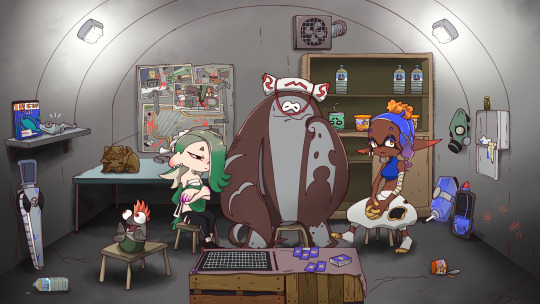
60 seconds! (till the world's end)
#HAPPY SPLATFEST#I love combining my favourite games😋#60 seconds is definitely one of the best games with this scenario out there#anyways TEAM BUCKET LIST FTW🔥#splatoon 3#splatfest#leyko drawz
2K notes
·
View notes
Text
:-"It was you. It was always you." Friends to lovers prompts-:
By @me-writes-prompts
When they wrap their hand around your waist protectively because it's just an instinct by now>>>
Blushing when they compliment you and then your friends tease you about it and you're just shflskhsljfljs
The lingering touches that have you wanting for more, but they're just so freaking oblivious
*While introducing them* "This is my...friend." "Friend?" *gulps and looks at them* "Yeah, friend."
Those nights when you both party hard and now you have to take them back to their house and they say, no insist, that you stay.
“I know you better than anyone else.” “Do you, though?” “…Of course, I do.” BUT THEY DONT KNOW YOURE IN LOVE WITH THEM
The causal flirting turning into something else because you start to have feelings for them
When they whisper in your ears things that they only want you to hear
^^"We should definitely get out of here. Don't you think so?" and you just(AHHHHH) "Y-yeah, sure. Uh huh." And they chuckle at your shyness because they know just what kind of effect they have on you.
"We could be more, you know?" "Hmmm? What do you want us to be other than friends?" "You know exactly what I want." "I need you to say it. I want to hear it." (SCREAMINGGGGG)
The inside jokes that only both of them know of and they start to randomly laugh with each other while others stare at them, like, are they crazy or what????(Crazy in love, I tell you)
When they cage you between their arms and lean and say "I know exactly what you're thinking." and you start to blush because wtf?!!!!!
Movie nights where you see a couple kissing and you just wonder when that will happen to you. But little do you know, they are already leaning in and you turn your head and they are so closeeeee.
^^"Can I-May I...kiss you?" Your breath catches in your threat and you force yourself to say something, and finally make out a small 'yes' before your lips are attached and you forget how to breathe(<33333333)
#writers on tumblr#prompt list#writeblr#imagine your otp#otp prompts#otp writing#writing prompts#story prompt#dialogue prompts#otp#writing#prompts#fanfic prompts#fluff prompts#story prompts#soft prompts#friends to lovers#best friends to lovers#romance prompts#creative writing#me-writes-prompts#writing advice#writing tips#writer prompts#writing dialogue#dialogue prompt#writing prompt#writing ideas#writing inspiration#otp meme
7K notes
·
View notes
Text
you're the thoughts that can't be tamed ⊹₊。ꕤ
some ways to build tension
⇴ holding person b's hand longer than usual, just because person a craves the skinship. meanwhile, the person b is practically on fire and keeps glancing at person a.
⇴ "and if you're not ready for this right now, then i can wait–" and the other person cuts them off with a kiss.
⇴ cutting people off with kisses in general. something so endearing about not being able to contain your love for someone that you have to express it asap.
⇴ that silence before a long, deep conversation between person a and person b. they're both looking around at anything but each other, when both parties want nothing more than to desperately reach out. (like they're spiraling not being able to talk to each other)
⇴ "so..." "so."
⇴ that feeling when person a knows there's someone behind them, but is too nervous to check in case it's person b. meanwhile, person b is highly anticipating person a to look back.
⇴ always (and i mean ALWAYS) managing to find each other even through the busiest of crowds. and having that moment where you two make eye contact across the room.
⇴ rubbing/scratching a body part (ex. back) and person a's hand lingers a little too low on accident. but they're freaking out and don't know what to do, so they just keep their hand where it is.
⇴ "if you wanna say something, now's your chance."
⇴ slowly watching person a walk away, even though person b wants them to stay. so, person b runs and tries to catch up with person a before they leave.
⇴ one bed trope except they can't even build the classic wall of pillows. the bed is tiny, so person a and b have to lay so close together that a can feel b's heartbeat pounding.
⇴ ^^ "are you cold?" person b asks even though they can feel their body heat radiating over person a.
#keyotosprompts#fluff prompts ⋆˚✿˖°#dialogue prompts#writeblr#otp prompts#otp writing#writing prompts#writing#imagine your otp#prompt list#writing prompt#dialogue prompt#story prompt#fic prompt#prompts#creative writing#writing inspiration#otp prompt#otp ideas#not one of my best prompt lists but its ok we ball
2K notes
·
View notes
Text
Anyway. Bi and Mspec Lesbians aren't a hotly "debated" topic or even new to queer culture, it's just the newest thing that bullies who REALLY want to be homophobic and even racist use to justify harassing gay people they don't like.
It's the thinnest possible veneer of progressive language wrapped around TERF and reactionary rhetoric so that they can feel righteous for forming an angry mob against vulnerable targets. If you're gullible enough to fall for the newest wave of bigotry within the queer community, and turn on your allies because they're "confusing" or "invading your spaces," the SAME way they turned on bi/pan labels, trans people, xenogenders, neopronouns, and aroace people before this, then get lost.
#No patience. Wither and rot.#These motherfuckers dogpiled the legend who leaked the no fly list because it identified as the wrong type of lesbian.#They will attack the people doing DIRECT ACTION over dumbfuck label discourse. Deeply unserious people.#Embarrassing to think that there are rubes out there who keep falling for this#For ALL our sakes I hope this is literally their first rodeos and they really haven't fallen for this bullshit twice.#But unfortunately I'm too old to be that hopeful.#I didn't get to see the big ''public block list'' made for us dirty queers who support or are bi/mspec lesbians but I hope I was on it#If a man is best judged by his enemies then exclusionists who echo terf rhetoric are the ones I WANT to have.#And ''public lesbian block list'' is in quotes because if you REALLY thought that such a thing wasn't a ''GO HARASS THESE PEOPLE'' charter-#--then you have a black mold where your brain used to be and it's rapidly eating into the bathroom tile you call a skull#Unironically you should not have a platform if you are THAT stupid or malicious to think it was anything BUT a harassment charter#I hope they're ashamed.#Context for those unaware: a flesh-eating amoeba created a public blocklist for people who supported bi lesbians#Minors and extremely small creators without big platforms were on that list#People got harassed but the most namely was Lockandkeyhyena who had people raiding his server with racial slurs and death threats.#I hope everyone involved sees who their ''allies'' are when they spread that sentiment.#A bunch of people ACTUALLY 'invading someone's space' to post the n-word and suicidebait.#THAT is who you appeal to. Sit with that.
2K notes
·
View notes
Text
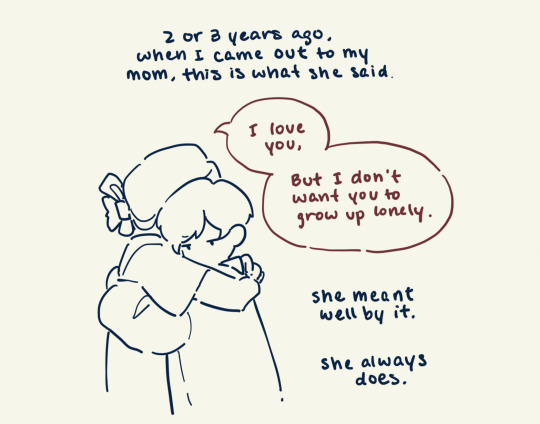
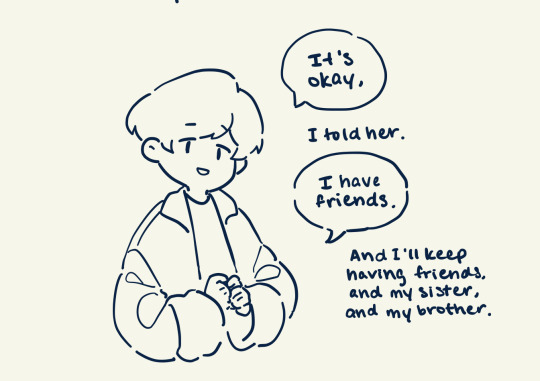
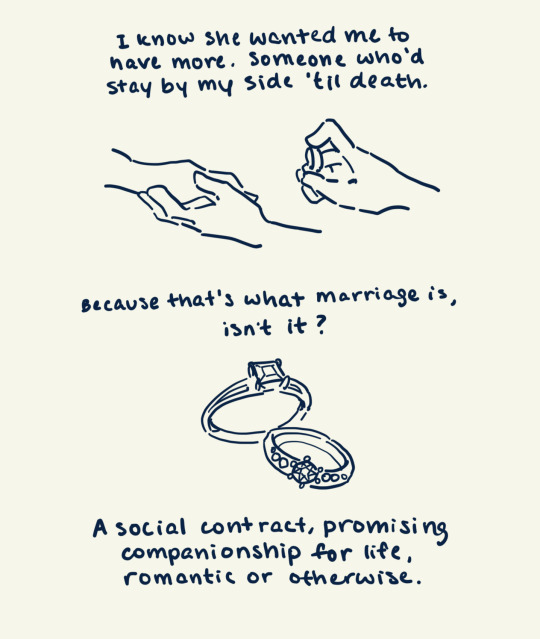
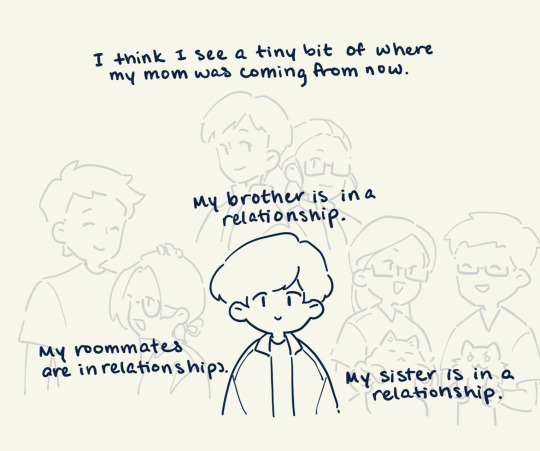
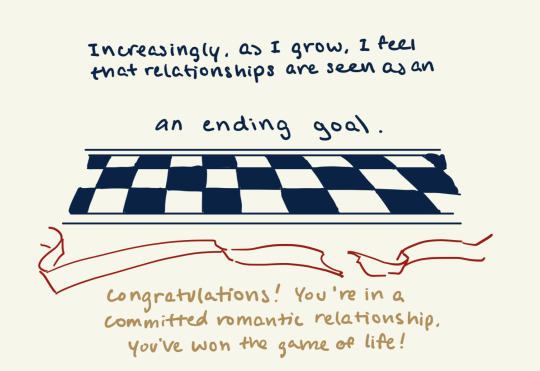
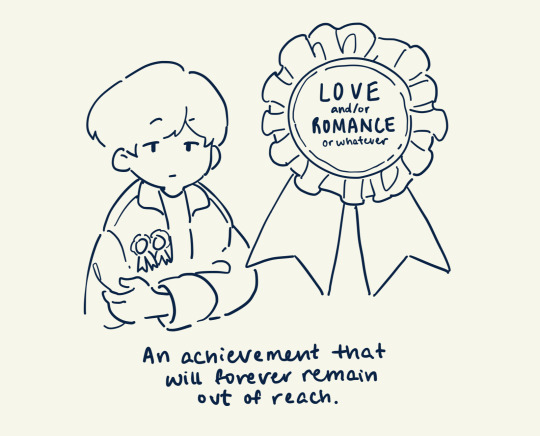

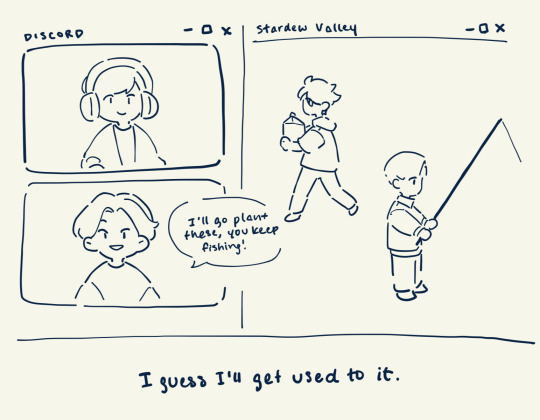
Thoughts on being aroace
#I like doing these little introspective thought comics they’re pretty fun#I didn’t get to include this in the comic but I do feel like loneliness is maybe not quite the right word#it’s not quite jealousy or envy either#more like#the sad knowledge that you are lower on someone else’s list of priorities than they are on your priorities#something like that I guess#if this seems like a sad comic don’t worry! I am ok :) I have my best friend and we’re both very clear on how much we care for each other#so I’m never really left needing or wanting more love or anything#love is so weirdly defined anyways
7K notes
·
View notes
Text
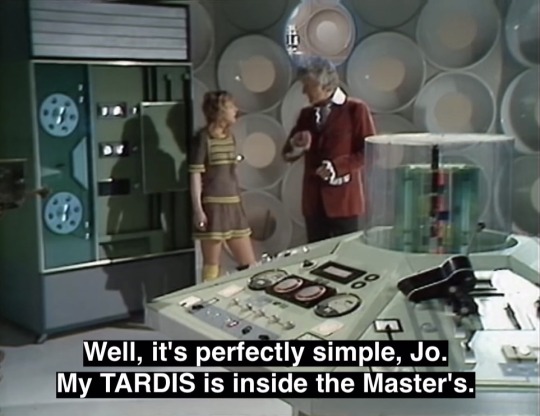
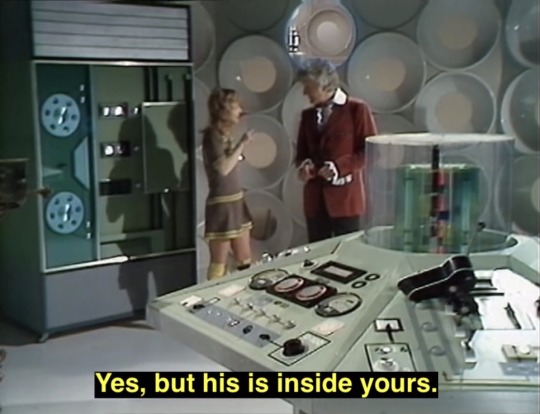
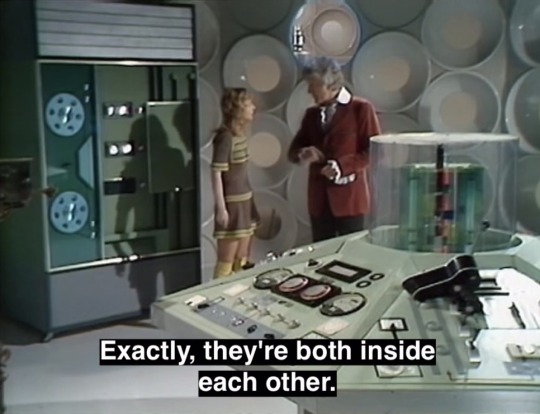
this was gay sex btw
#this was easily the most bizarre surreal worst best messiest serial i’ve seen yet#i was going to list all the insane things that happened but there’s far too many#what the fuck was going on. like what was happening. well many things were#micah.txt#whoposting
2K notes
·
View notes
Text
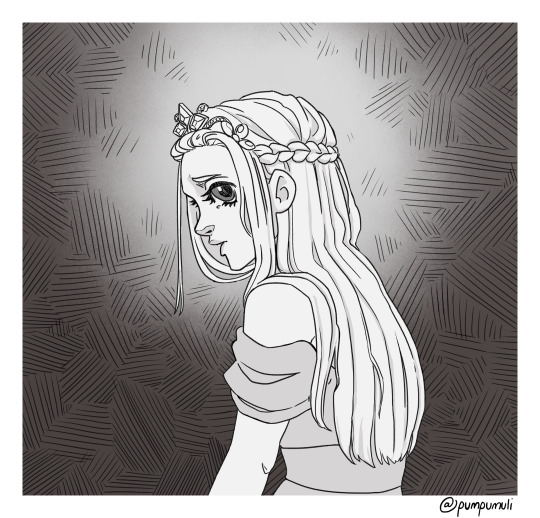


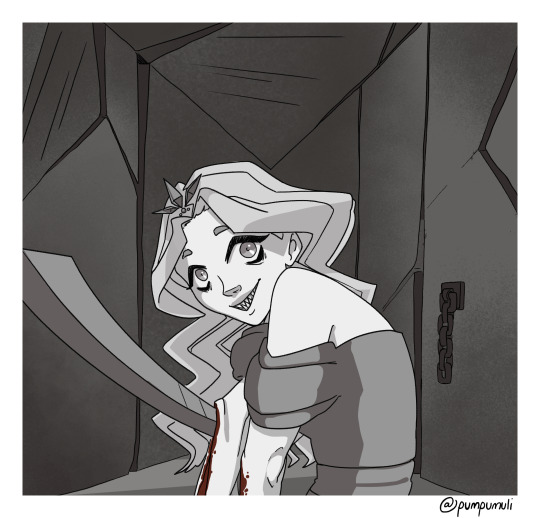
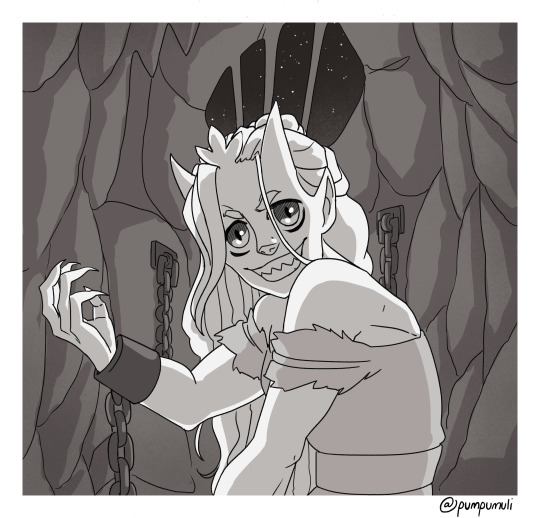
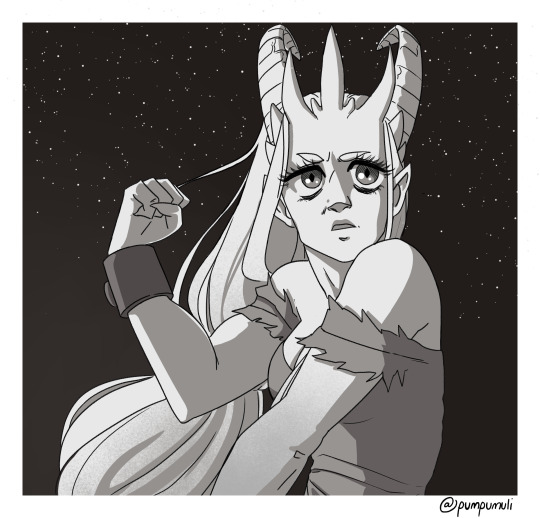


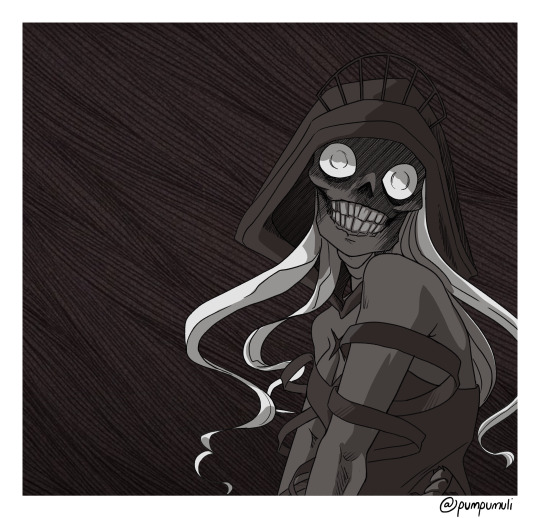
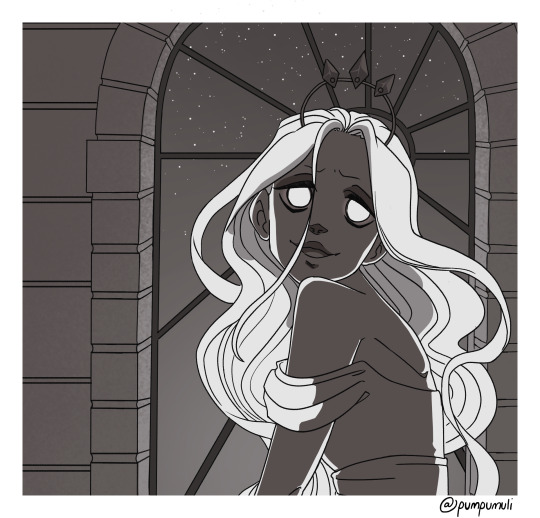
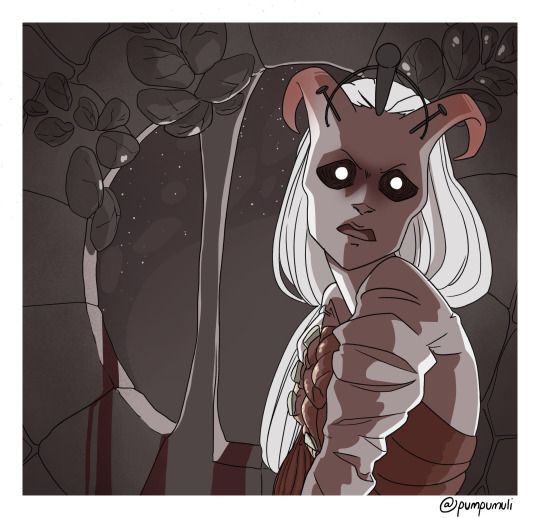
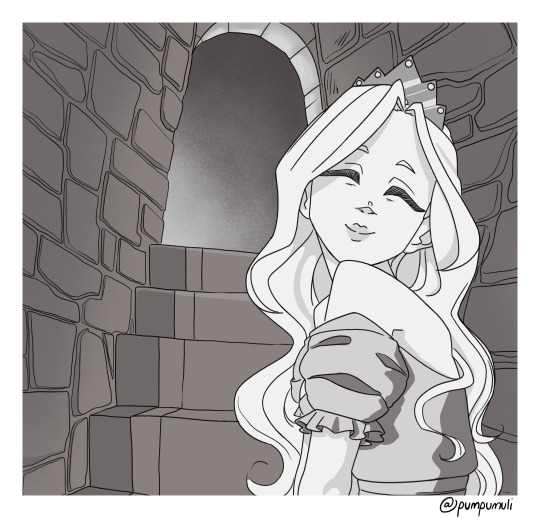

Here are all the frames for the STP Lost Kitten video! Some are better than others. Wraith's BG is literally from the game because I am not able to draw such lines on the tablet.
This was a fun project. Dunno if I'll do anything like this again though.
#Thank you to Tobi and Niko for helping me through the artist's block#The Nightmare turned out the best#Poor Witch bit the bullet and got the ugliest bg#slay the princess#stp#stp fanart#animatic frames#am i supposed to list all the princesses?#it's a lot of them#not everyone though
2K notes
·
View notes
Text
Film #901: ‘Black Panther', dir. Ryan Coogler, 2018.
As far as my personal tastes are concerned, I think Ryan Coogler's Black Panther might be one of the best films in the Marvel Cinematic Universe. While other parts of the franchise will appear on this list, most obviously the massive crossover events of Avengers: Infinity War (2018) and Avengers: Endgame (2019), Black Panther is the only standalone superhero film from this juggernaut to make it here (The Avengers films listed above made such a small dent in film history that they were removed from the most recent edition of the book - as far as I know, Black Panther is still there).
Obviously, personal taste isn't a contributing factor to what makes it on the list, and a few other franchise entries that I particularly enjoyed, and which I think are politically and cinematically relevant, aren't on the list. So what is it that makes this film special? Is it truly one of the most significant films ever made or, at the very least, does it do something no other film does?
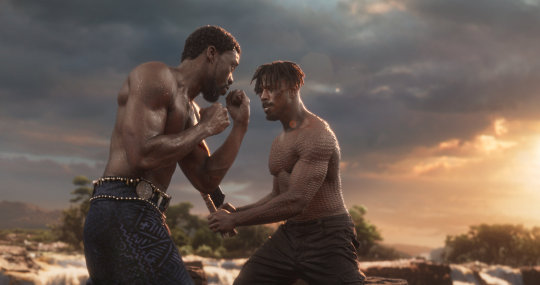
I won't do too much plot rehashing here - it's not a particularly difficult film to find, and I think it's one of the films on the list most likely to have been seen widely - but context is important with a few of this film's traits, so:
T'Challa (Chadwick Boseman) rules as the king of Wakanda following the death of his father. A traditional ritual gives him the superhuman strength and reflexes of the Black Panther, which is supplemented with the technological wizardry created by his sister, Shuri (Letitia Wright), founded on Wakanda's access to a deposit of vibranium, the strongest metal in the world. Wakanda presents itself to the outside world as a poor farming nation, but behind an invisibility shield it is a thriving metropolis drawing heavily from the Afrofuturist style.
Unlike other Marvel films, which are about interchangeable heroes defending from an outward threat, Black Panther ties the plot directly to T'Challa's heritage and current identity. Erik 'Killmonger' Stevens (Michael B. Jordan) aids a South African arms dealer in stealing vibranium from Wakanda, but soon double-crosses him and makes a play for the Wakandan throne. When we step outside the borders of Wakanda it is only for the arms-dealing subplot; the film's main body is tightly focused on the power struggle for the future of Wakanda.
Killmonger defeats T'Challa in combat, making him the rightful king, and immediately orders Wakandan weapons to be provided to the nation's overseas spies to overthrow the regimes that have persecuted black people for hundreds of years. T'Challa, presumed dead, is rescued by a separatist tribe and eventually returns to battle Killmonger once more, grappling as he does so with Wakanda's isolationist history and global injustice. In other words, some big issues for a superhero film.
The film's attempts to explore these issues are directly tied to the production of the film: much was made of the fact that this was a superhero film by a black director, presumably intended to draw a black audience to the cinemas (it worked - by some metrics the audience share in the first week was double what was recorded for any other Marvel film). Whether there was any genuine concern about representation on the studio's part, or whether they viewed black audiences as an untapped market, is unclear, but it does seem like Marvel put effort into the piece. Some elements of the comics were removed to avoid racist overtones; the production design invested heavily in research; dialogue is delivered in Igbo and Xhosa. The cast includes contemporary black talent - Boseman, Jordan, Wright, Lupita Nyongo, Daniel Kaluuya, Danai Gurira, Winston Duke, and a voice cameo by Trevor Noah - as well as Forest Whitaker and Angela Bassett, two of the most respected black performers in modern Hollywood. The result of all this effort is that Black Panther is a compulsively watchable film. The performances and the visual style of the film are consistently excellent and memorable, with the one significant letdown being a merely passable American accent by Martin Freeman as a CIA agent. Where it particularly succeeds is in merging the traditional imagery of African cultures with contemporary visual culture: skyscrapers with thatched mezzanines and tribal elders wearing bold green suits and lip plates. Visual style in superhero films is often underutilised, given the propensity of these films to be set in disappointingly-grey metropolises. What Coogler's film does is invest Wakanda with visual spectacle on the mundane level, rather than just in the crowd-pleasing chases and fights. This was certainly made easier by Coogler's insistence that the studio hired some of his former collaborators: cinematographer Rachel Morrison and production designer Hannah Beachler (who also worked on Moonlight (2016) and Beyoncé's Lemonade (2016)).
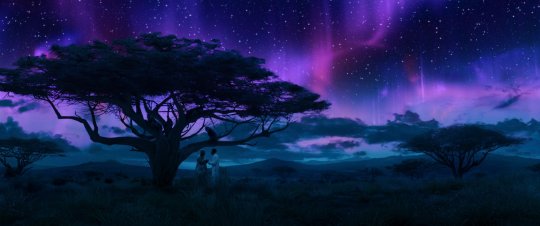
As an entry in the Marvel Cinematic Universe, then, Black Panther is a very strong film. I suspect, though, that the reason it's been included on a list of the films you must see before you die is because of what it represents, more than its merits as a piece of cinema. This is a politically-charged superhero film, addressing the immediate political context as well as asking questions about how colonial pasts can be remedied. The latter discussion is multifaceted and somewhat difficult to navigate: I'm not an expert on this field so I've been influenced by the perspectives of Jelani Cobb, Patrick Gethara, Adam Serwer and Carlos Rosario Gonzalez.
While the character of Black Panther dates back to the 1960s (and while Stan Lee denied any connection to the political connotations of the name - the character shortly preceded the founding of the Black Panther Party) there's no denying that the character has greater resonance now. The film's nods to the current political landscape are overt: in a mid-credit sequence, T'Challa addresses the UN and states that it is 'better to build bridges than barriers', seemingly in direct response to a certain president who was keen to build a certain barrier. The film's opening flashback is also directly tied to a political event - the Los Angeles riots of 1992. What these references do, though, especially in conjunction with the background of Killmonger as a former Navy SEAL, is make this film feel like a specifically American response to issues of race and persecution. Regardless of what T'Challa is meant to represent, and where he canonically rules, the strongest emotional beats of the backstory either involve Americans or take place in America. This makes a certain sense: the film is an American production, the character an American creation, and the audience for the film is predominantly American as well.
This goes a long way towards explaining the film's significance for the purposes of the list, too. It features the first black hero to lead a Marvel film, during a time of American political and social upheaval, and specifically responds to a question that has only become more relevant since the film's release. Is violence an acceptable method to overthrow oppression?
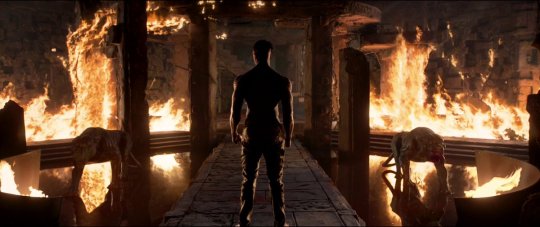
Killmonger certainly thinks so, but his politics are obviously disingenuous. His stated aim is to use Wakanda's power to overthrow the global colonialist powers, but one of the three places he sends weapons to first is Hong Kong (the film was released before the Hong Kong protests of 2019, making the inclusion here a little unusual). More evidently, Killmonger's interest in Wakanda is as a seat of power, rather than as a culture. He gives orders to eradicate the plant that gives the ruler the powers of the Black Panther, casually demolishing a tradition that he is the last to benefit from. The film opts not to draw a clear distinction between Killmonger's sociopolitical beliefs and his quick devolution into the kind of autocrat he claims to want to overthrow. Adam Serwer uses this point to critique imperialism as a system of control, saying that Killmonger's attempts to dismantle colonialist structures fails because he attempts to use the tools of those structures. Serwer is quick to point out that the film does not disavow violence as a useful tool, merely saying that it is the intent that matters.
The film introduces several narrative strands that complicate the discussion. Killmonger is not only a rebel against persecution, he's also a product of the American military, and holds a rightful claim to the throne of Wakanda. His beliefs overall are shaped by these three facts, and when one facet becomes dominant it seems to be intended to open up discussions about the merits of Killmonger's approach. In contrast, T'Challa's attitude towards Killmonger is sometimes naive. His major concern seems to be that when his father killed his uncle, orphaning Killmonger, there was no consideration of bringing the child back to Wakanda. This is presented in the film as a way of preventing Killmonger's radicalism, as though a) his radicalism is unjustified, and b) orphaning a child and then bringing said orphan to the other side of the world would in no way backfire horribly. Overall, these viewpoints frequently balance each other out - violence is used redemptively and T'Challa learns that the secrecy of Wakanda is less important than using its power constructively - but Killmonger's original nuance is quickly ironed out to make him just as bad as any colonialist. In fact, this process towards simplistic villainy starts in his first scene: in the celebrated discussion about museums profiting from appropriated African artifacts, it's easy to overlook that the museum's curator is specifically brought into the scene in order to be killed - her presence is unnecessary and her death meaningless, unless the film intends us to believe she is just as culpable for this as the people who originally looted the artifacts.
While the style of Wakanda was rightly feted, some responses pointed out that the nation is still represented as being somewhat primitive. Despite its contemporary appearance and futuristic technology, its political structure is still a monarchy and the only way of challenging Wakanda's ruler is by ritual combat (combat that T'Challa, incidentally, always plays fair at). In other words, Wakanda is still a white person's vision of how an African future could exist, failing to imagine a democratic structure and focusing on a wealthy elite who are granted enormous power. Despite the combat prowess of the all-female Dora Milaje, none of the challengers to the throne are women, and so Wakanda remains a patriarchal monarchy where seemingly no thought is given to succession. The only thing that determines whether you get to be king is how good you are in a fight, which feels a little off-key in a film where empathy is meant to be one of T'Challa's strongest traits and where women are consistently shown to be smarter, more capable in combat and more versed in diplomacy then the men.
It's also interesting that the battle over control of the throne entails the deaths of dozens and dozens of Wakandan fighters, which is hardly remarked upon. Instead, Wakanda seems poised on a knife-edge of structural collapse at all times (another unfortunate cliche of Africa in popular media). Characters point out that Killmonger appears in Wakanda and takes the throne almost immediately, for instance. While superhero movies do move quickly, it's worth looking at how fast this one goes: Killmonger and Claue steal an artifact from London, are in Busan the next day, and then Killmonger makes his claim for the throne in Wakanda either one or two days after that. T'Challa is dispatched that same day, apparently, but is back to fight Killmonger, at most, two days later. The entire Wakandan policy towards the globe is changed twice in two days, an unstable regime change that the film plays off as perfectly ordinary, even though the nation has been held by T'Challa's line for over fifty years.
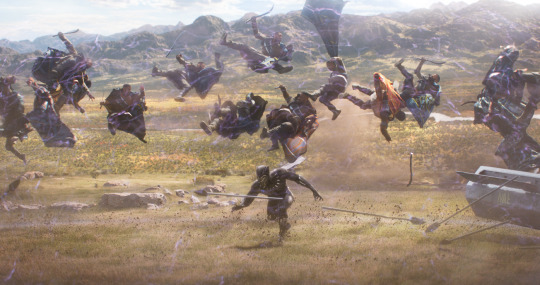
These critiques, however, threaten to go beyond the boundaries of what the film had the capability to be. Black Panther is already playing very loosely with the narrative structures of the superhero film, and cliches are required in this genre to do a lot of the lifting for the audience. For better or worse, audiences understand the right to rule by combat, and to remove the elements of tradition entirely from the film would make it indistinguishable from the worldbuilding of any other (read: white) superhero. Some reviewers wanted T'Challa to agree more with Killmonger, or for the film not to put the two in direct conflict: they perceived the film as ignoring the real perpetrators of injustice in favour of in-fighting among black communities. Wakanda, however, doesn't have problems with white imperialism. The two things it has problems with are insularity, and opinions from Americans on how it should conduct its national business. By feigning an appearance of poverty it has largely been left alone by the West and been left to look inwards; Killmonger is the worst of both worlds, an American with a belief in the superiority of American military-industrial ideologies, who happens to know the truth about Wakanda's capability. To change Killmonger's character ruins the plot, and to make the story about a direct fight against the West instead of an internal power struggle fundamentally changes the film's intent (I also can't imagine a Marvel film coming right out and advocating for a rejection of American ideologies because those ideologies are where the money is).
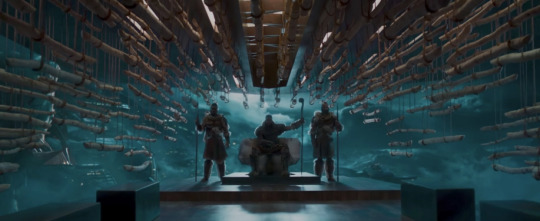
I don't want these critiques to overwhelm the amount of good that can be found in Black Panther: I think those who wanted the film to be vastly different are in the minority, and I don't think their critiques would be workable for a franchise superhero film. Every film in the genre needs to abide by a certain set of ideologies, which is why they typically talk about self-determinism rather than political change. Black Panther is different in that respect, and I think it's very successful. What these criticisms do, though, is make the film open to re-examination, which is also quite rare for a superhero movie. With most of the other Marvel offerings, the films mean the same things now as they did when they were released. They're hermetically sealed, never gesturing to anything outside their sphere that could threaten the consistency of their worldview. I think this is why they often sink without trace: they're so obsessed with providing a correct answer that once the credits roll there's nothing to discuss.
Black Panther does not have this problem. It will likely remain a film worthy of examination and debate, which means it's a film you must see.
7 notes
·
View notes
Text
20+ mods essential to throwing the almost perfect party!

This was highly requested and I'm so happy to share these mods with you! Gameplay tips are on the way ♥
Custom Events
1. KiaraSims
2. Ilkavelle
3. Rex x Britanny
4. Come Celebrate
Food
1. The Catering & co. by Qmbibi
2. Banquet tuning by Bienchen
3. Buyable Cake by @ravasheencc
Little Miss Sam
1. Auto Employee
2. Small Invite Overhaul
3. Where are you
Bienchen
1. Party invite any played sim
2. Paired dancing tweak
3. Paired highschool dancing tweak
4. Conversation Tweak
RVSN
1. Kiss of Fresh
2. A-Bouquet
3. Take a dance on me
4. Side FX
Small Mods
1. Steady Seat by Amellce
2. Dance Override* by Steven Studios
3. No cooldown for celebration Cannons by @imtashamonet
Weerbesu
1. Longer Parties & More Guests
2. Faster Sim Spawning
Xtra 10 mods I didn't mention in the video (It's bc I'm still experimenting with some of these mods to see if it works)
More icons for clubs by Zerbu
More icons for holidays by LMS
More holiday traditions by KiaraSims
No fire by Aramiteus
Dress code by @littlemssam
Party Anywhere by weerbesu
Functional Drinks by @somik-severinka
More spa day drinks by LMS
Serve drinks on table by Zero
Gala style plating by @somik-severinka
Paper Plate Setting by @surely-sims
*aesterik means paywalled
Thank you to all the mod creators for these amazing mods ♥
#ts4 simblr#simblr#the sims 4#sims 4#simmer#the sims community#simblog#ts4 simbrl#my sims#sims 4 party#sims 4 mods#sims 4 best mods#sims 4 mod essentials#sism 4 must-have mods#sims 4 top mods#sims 4 new mods#sims 4 small mods#sims 4 mod list#sims 4 party mods#sims 4 mod recommendations#sims 4 20+ mods#sims 4 mod recommendation#ts4 mods#ts4#sims 4 aesthetic#Sasha's Space Mod Recommendations
1K notes
·
View notes
Text
#polls#monster boyfriend#monster girlfriend#yes i know there are so so many I didnt included#cause it would get too complicated#i wanted to just keep it simple fffff#so sorry if I erased your fav#just pick whichever you'd like best out of the list#also I didnt want to just put merfolk#cause I was also thinking like#creature from Shape of Water type beings
7K notes
·
View notes
Text
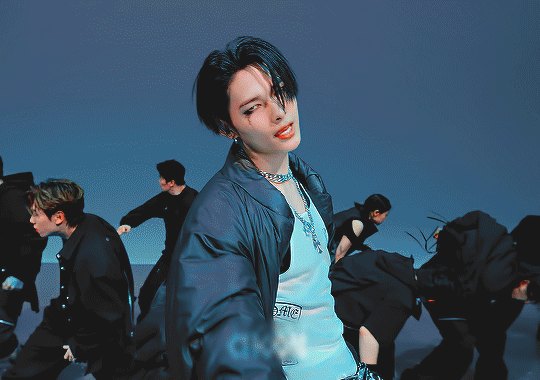
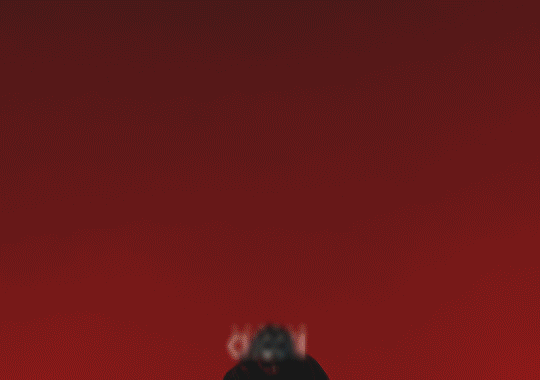
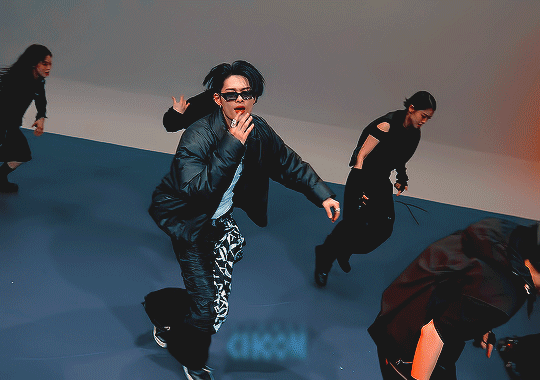
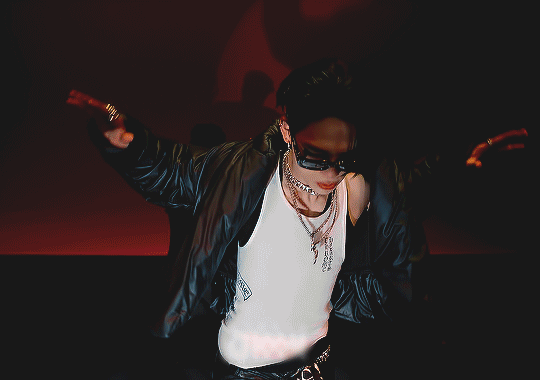
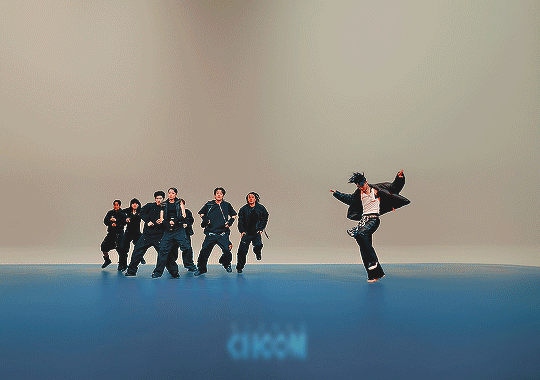

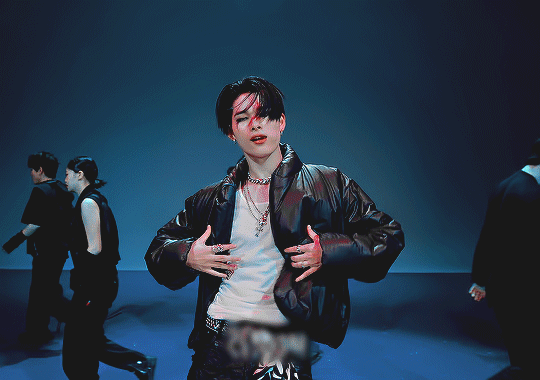
NI-KI ⟡ Studio Choom 'Artist of the Month'
#enhypen#enhypenet#*jelly's#nishimura riki#riki#he is everything#GOD put him up there in the list of best dancers because that is what he is#i really want to put everything here UGH everything is so beautiful#riki dances so beautifully#my son i can't be any prouder 😟#flashing tw
618 notes
·
View notes
